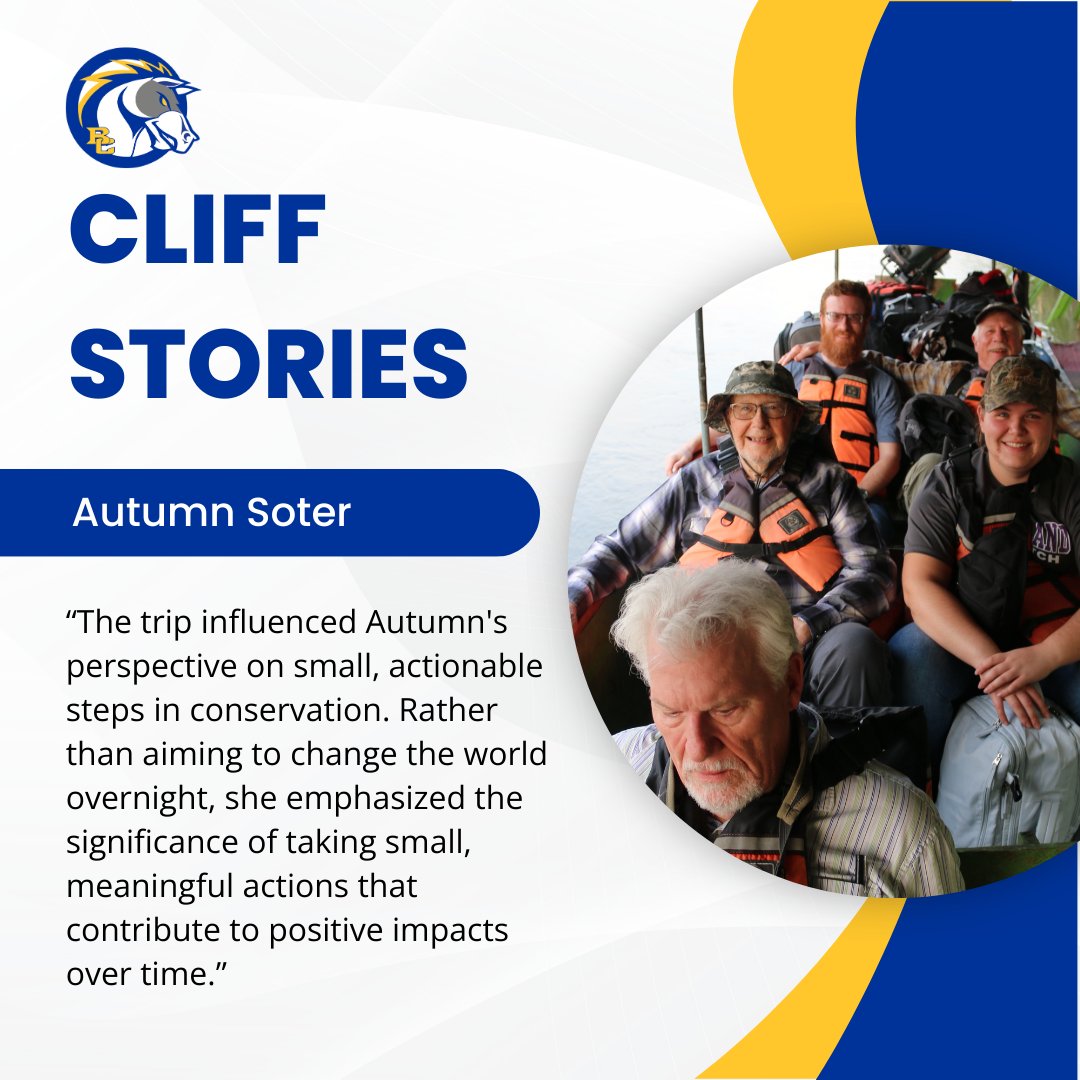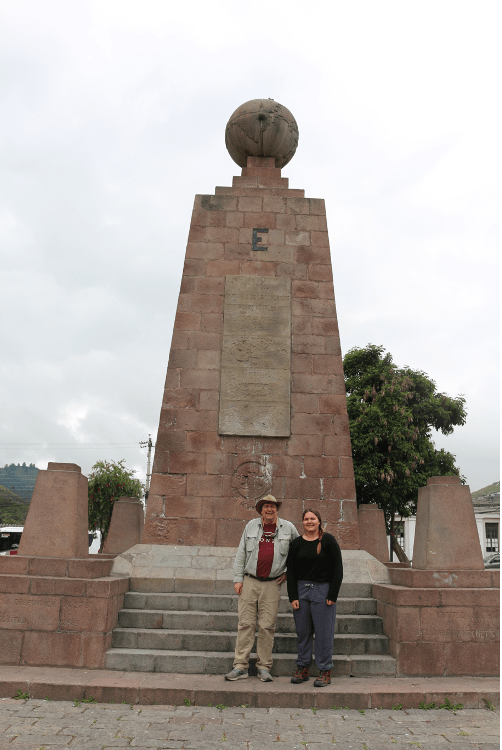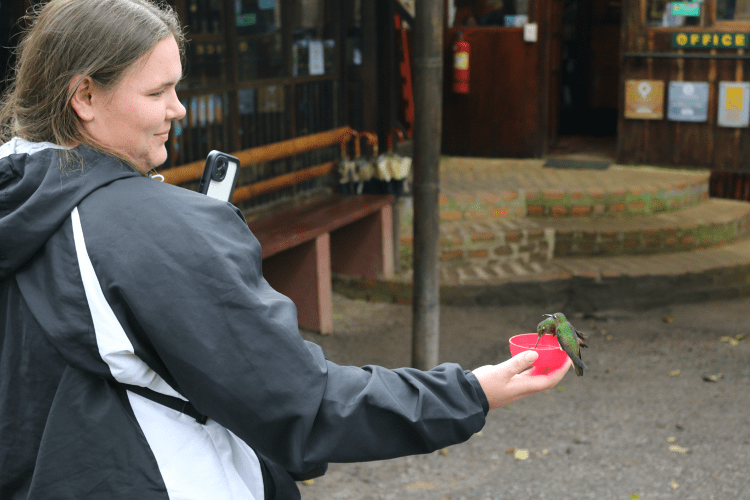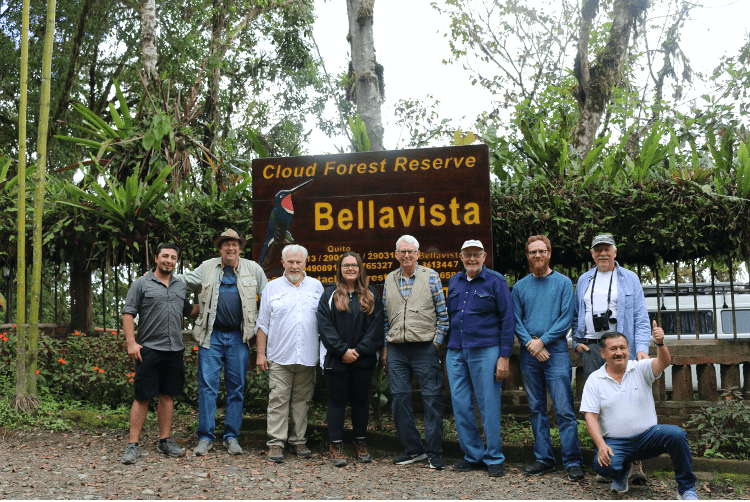
Autumn Soter
An experiential learning trip to Ecuador provided Autumn with a unique perspective on living in diverse ecosystems and interacting with local communities. Accompanying Autumn was Dr. Brian Hazlett, Briar Cliff professor of Environmental Science and Biology.
 At Equator monument in Calacali - Dr. Brian Hazlett and Autumn Soter
At Equator monument in Calacali - Dr. Brian Hazlett and Autumn Soter
Autumn began by describing the first three days spent in the Amazon Rainforest area. Living in the jungle without much electricity allowed her to experience a lifestyle different from what she was accustomed to. The encounter with the Kichwa community, observing their daily routines and learning about their relationship with nature, left a lasting impression.
As her trip continued, Autumn traveled to different ecosystems in Ecuador. Moving from the Amazon to a more central or northern region, she explored a variety of landscapes, encountering waterfalls, diverse bird species, and meeting locals. The transition to the cloud forest in Bella Vista offered a unique experience with clouds enveloping the surroundings and vibrant bird species.
 Autumn Soter feeding hummingbirds at Bellavista Cloud Forest
Autumn Soter feeding hummingbirds at Bellavista Cloud Forest
Autumn reflected on the environmental challenges faced by the communities, particularly in the Amazon, where the extraction of oil raises concerns about disrupting the land. The dilemma between economic development and environmental conservation parallels global discussions about resource extraction.
One key takeaway from the trip was Autumn's realization of the importance of gratitude for the resources available in North America, such as electricity and running water. She emphasized the need to appreciate and not take for granted the privileges of modern living.
Theodore Roosevelt's quote, "Do what you can with what you have where you are," resonated with Autumn, reminding her of the responsibility to make positive contributions within her means. She highlighted the challenges faced by communities in Ecuador, such as water safety and the need to grow their own food due to limited access to cities.
Autumn also addressed the impact of the trip on her career aspirations. The exposure to diverse ecosystems and conservation efforts in Ecuador fueled her passion for environmental conservation. She expressed a desire to engage in conservation work and educate people about the importance of preserving ecosystems.
 Ecuador travelers (left to right): Luis Cruzatty (tour director); Dr. Brian Hazlett; Robert Livermore; Autumn Soter; Steve Munzinger; Fred Wyant; Kyle Scheef; Jerry Probst; Marcello (bus driver)
Ecuador travelers (left to right): Luis Cruzatty (tour director); Dr. Brian Hazlett; Robert Livermore; Autumn Soter; Steve Munzinger; Fred Wyant; Kyle Scheef; Jerry Probst; Marcello (bus driver)
The trip influenced Autumn's perspective on small, actionable steps in conservation. Rather than aiming to change the world overnight, she emphasized the significance of taking small, meaningful actions that contribute to positive impacts over time.
Overall, Autumn's experiential learning journey in Ecuador provided her with a rich understanding of environmental challenges, cultural diversity, and the interconnectedness of conservation efforts. The trip left her inspired to contribute to the field of environmental science and conservation in her future endeavors.
This is part of a series of Abroad Stories profiling students who took experiential learning trips.